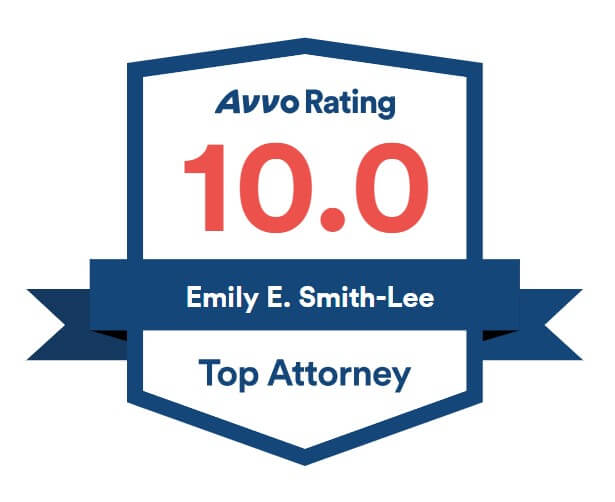Understanding, Addressing, and Resolving Business Disputes
Navigating Business Litigation: An Essential Guide for Small BusinessesBusinesses often face unexpected challenges and disputes that can have significant legal and financial implications. In this comprehensive guide, we explore the complex landscape of business litigation, shedding light on common disputes that small enterprises may encounter. From contract disagreements to employment issues, partnership conflicts, and more, we delve into the intricacies of these disputes, equipping you with the knowledge and insights needed to safeguard your business interests and make informed decisions when faced with adversity.
Types of Common Business DisputesThe number of different kinds of disputes that can plague a small business are as varied as the world of small business itself. Among the most common are disputes over contracts, employment disputes, unlawful behavior by one business toward another (known as business torts), and disputes between shareholders and partners.
Get a closer look at these common types of business disputes at Small Business Disputes. Navigating Business Disputes: Your OptionsWhen faced with a disagreement you can't handle on your own, there are three basic options in the legal system for addressing them: mediation, arbitration and filing a civil lawsuit. Each has its own advantages and disadvantages, and what makes the most sense for you will depend on the circumstances.
Learn more at Business Dispute Resolution Strategies. Real-World Case StudiesExplore real-life case studies of businesses facing various disputes and challenges, including contract disagreements, non-compete issues, defamation, equity disputes, and more. Learn how these cases were navigated and resolved, gaining insight into the complexities of business litigation.
Business Dispute Case Studies. Shareholder and Partnership DisputesIn the dynamic world of business, partnerships and shareholder agreements are the cornerstone of countless enterprises. These agreements define roles, responsibilities, and profit-sharing structures. However, even in the most harmonious business relationships, disputes can arise. This comprehensive guide explores two critical dimensions of partnership and shareholder conflicts: breaches of fiduciary duty and common shareholder disagreements. Understanding these aspects is essential for fostering strong business relationships, effectively resolving disputes, and safeguarding the interests of all stakeholders.
|
We're Here to Help.OR
|
Questions About a Business Dispute or Lawsuit?
Our Solutions Roadmap is a quick and easy way to share the details of what you are facing and receive preliminary feedback from a member of our team. Use the button below to get started- it is 100% confidential and 100% free.
Meet Our Business Attorneys

Emily Smith-Lee is the owner and founder of slnlaw. She is a 1996 graduate of Boston College Law School. She was previously a partner at the Boston office of a large international firm, where she worked for thirteen years with a focus on business litigation. In 2009, she started the firm that since became slnlaw, and has grown it from a solo practice to a five-attorney firm with multiple practice areas. She has been recognized as Massachusetts Superlawyer each year since 2013, and in 2018 earned recognition as one of Massachusetts Lawyers Weekly's Lawyers of the Year. She has written a book on employment law: Rules of the Road, What You Need to Know About Employment Laws in Massachusetts, and helped hundreds of small business owners with contracts, business transactions, employment law advice, business incorporation, and risk management. She has also litigated business disputes in state and federal courts.

Rebecca Rogers: Rebecca is a 2006 graduate of Boston College Law School, and has worked with slnlaw since 2013. She previously worked as an intellectual property litigation attorney for Fish & Richardson in Boston, Massachusetts, and clerked for the Massachusetts Supreme Judicial Court. Rebecca has helped clients with business contracts, employment contracts, and employment law advice.

Jenna Ordway: Jenna is a 2013 graduate of Quinnipiac Law School, and also earned an LLM in Taxation from Boston University in 2015. She has been affiliated with slnlaw since 2011, first as a law clerk and then as an attorney. Jenna has been recognized since 2019 as a "Rising Star" by Massachusetts Superlawyers. Jenna has helped many small business owners with simple and complex business incorporation, contract review, advice and analysis regarding business disputes, employment law advice, and advice about business succession considerations as part of estate planning.

Elijah Bresley: Eli is a 2014 graduate of Seton Hall Law school, and has worked with slnlaw since 2020. He previously worked for a boutique employment law firm outside of Boston, and then for the Labor and Employment department of a large Boston firm. He also spent a year clerking for the judges of the Superior Court in Hartford, Connecticut. Eli has helped our small business clients with employment law advice and defense of employment-related lawsuits in MCAD and state and federal courts.

Sharleen Tinnin: Sharleen is a 2010 graduate of Northeastern University School of Law, and has been with slnlaw since 2023. Prior to joining slnlaw, she worked with King, Tilden, McEttrick & Brink, P.C. on complex civil litigation matters. She previously worked for the United States Department of Justice, and received an "Excellence in Justice" award in 2017. Sharleen has helped clients litigate business disputes in state and federal courts, and advised business owners about succession considerations as part of their estate planning.
How We Can Help
Our team of legal experts specializes in helping small businesses understand, address, and resolve disputes effectively, protecting your business interests and delivering peace of mind in the face of legal challenges. You can click the button below to schedule a free information call, or call us at (781) 784-2322.
|
Emily Smith-Lee Rated by Super Lawyers loading ... |
Jenna Ordway
Rated by Super Lawyers loading ... |


